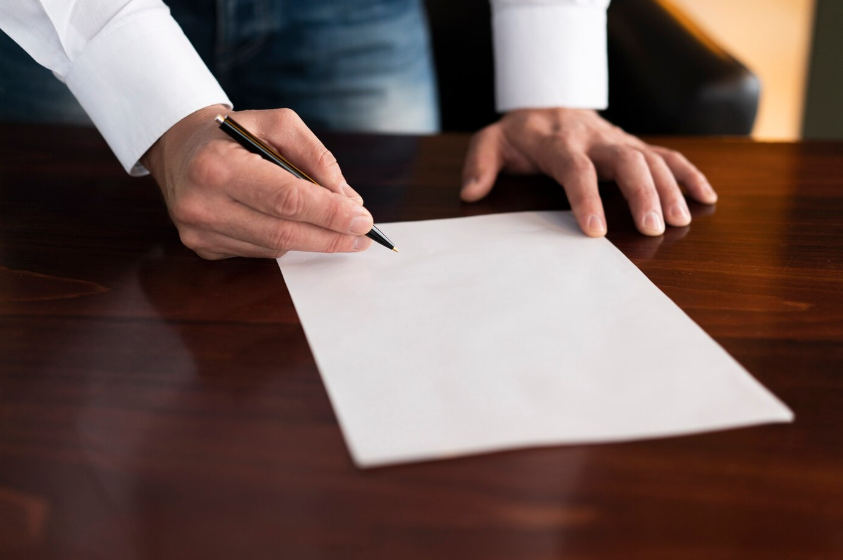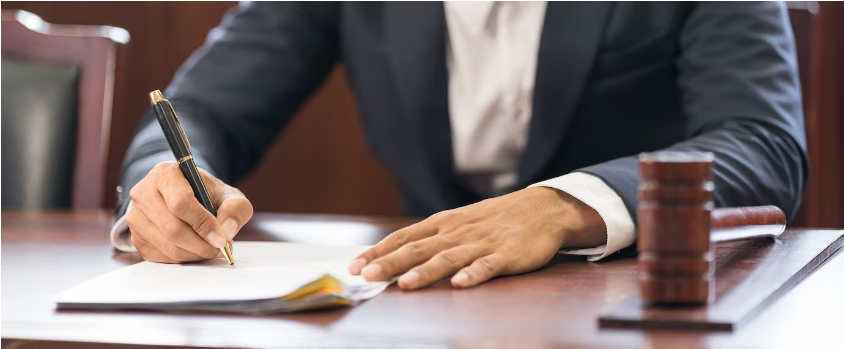Documents Notarized: Everything You Need to Know
Notarized documents, from legal matters to financial transactions, are crucial in our lives. In the US, more than 1.25 billion documents are notarized yearly. Hence, they provide an extra layer of security and authenticity to the documents we rely on.
However, the process of getting your documents notarized can be demanding. If you're feeling lost in a bureaucratic jungle filled with legalese and cryptic procedures, fear not! We are here to help.
To ensure a smooth notary appointment, you need to be well-prepared and understand the requirements. In this article, I will provide tips for a smooth notary appointment to help ensure a successful notarization process.
But first, let’s discuss.

What is a Notary Public?
A notary public is an official appointed by the state to perform various notarial acts, such as verifying the signatory's identity, witnessing the document's signing, and applying their seal and signature.

What is Notarization?
A notarization ensures the signer's identity and that they signed willingly, adding legitimacy and credibility to documents. This process is witnessed impartially by a notary public, a state-commissioned official.
Now Tips for Expedited Legal Proceedings
- Gather All Necessary Documents Before Your Appointment
- Prepare all the necessary documents that need to be notarized, such as identification and the documents to be notarized beforehand. Don't forget to bring any supporting documents and get prints of the documents early on. Complete all required information except for the date and signature before the appointment. This way, you can ensure that the documents are ready for signing.
- Bring a Valid Government-Issued ID
- Bring your valid government-issued ID such as a driver’s license, US passport, state ID, Green card, Employment Authorization card (EAD), or Valid Foreign Passport (issued outside of the USA) that has a stamp from the Citizenship and Immigration Services to verify your identity. Note that the ID is not expired or matches the name to the documents to be notarized. ID cards that are not accepted include Social Security, work, student, Medicare, and temporary driver’s licenses.
- Check Notary Fees and Acceptable Payment Methods
- The cost to notarize a document can vary depending on your state and the documents involved. Before an appointment, check your notary fees in advance. Also, check if they accept payment methods beforehand. If they prefer cash, credit card or a payment app like Zelle or Venmo.
- Ensure All Parties Involved in the Notarization Are Present
- If multiple parties are involved in the documents notarized, such as a co-signer or witness, you should ensure that they are present. To be sure whether additional parties are required, it is best to consult with the document preparer and/or notary public beforehand.
- Schedule Your Appointment
- Proactivity is key! Scheduling your notary appointment in advance minimizes the risk of unexpected delays or last-minute scrambling. This also ensures the notary, any required witnesses, and all signatories are available on the designated date and time. For added convenience, some notaries offer mobile services, which means that they will come to your location to perform the notarization. This can be a helpful option if you're unable to leave your home or office.
- Bring the Original Document
- In order for the notary to verify the authenticity of your document, it is essential that you bring the original document with you to your appointment. This is a small but important step that can greatly improve the success of your notary appointment. It is more common than people realize for individuals to forget to bring their original documents.
- Arrive on Time for the Appointment
- It is important to arrive at the time of your notary appointment to avoid chaos and last-minute rush. Be respectful of everyone's time, so if you anticipate running late, be sure to notify the notary in advance to avoid any inconvenience.
- Bring a Witness
- Notarization witness requirements vary. The document or requester may specify the need for a witness. The number of witnesses required differs by state and document type, usually one to two with valid ID. Witnesses should be impartial and have no personal or financial ties to the document. Confirm requirements with the notary beforehand to avoid any delays.
In Conclusion
Notarized documents are the foundation of our legal and business landscape. They provide a level of credibility, authenticity, and security that is difficult to achieve through other means.
It is important to understand what documents notarized are, who can notarize them, and why they are essential. This knowledge can help individuals and businesses navigate various transactions and legal matters confidently. Therefore, learning how to notarize a document is advisable to optimize the process and increase efficiency.
FAQ
- Q. Where can I get something notarized near me?
- A. In addition to traditional locations like banks and courthouses, you can use Mobile Notary Service. These services come to your location for added convenience.
- Q. How much does it cost to get something notarized?
- A. Notary fees can vary per document and state. Location, number of signatures, urgency, and travel (for mobile notaries) can all affect the price. To get an accurate quote, call your preferred notary service.
